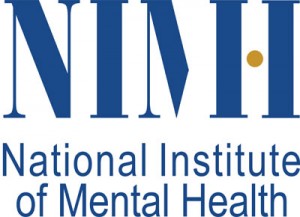
In this episode of the Integral Health Resources Podcast, I discuss an important paper by Noel Hunter and William Schultz called A Response to the Hyper-focus on Brain-based Research and “Disease”.
Here are some other media resources that may be helpful/relevant to this discussion:
- A Response to the Hyper-focus on Brain-based Research and “Disease”
By NOEL HUNTER & WILLIAM SCHULTZ
http://www.madinamerica.com/2015/08/a-response-to-the-hyper-focus-on-brain-based-research-and-disease/ - White Paper: Brain Scan Research
Noel Hunter, Doctoral Student & William Schultz, Doctoral Student
http://psychintegrity.org/wp-content/uploads/2015/08/White-Paper-Brain-Scan-Research.pdf
Here are the quotes from the white paper that I cited throughout this podcast:
The brain-based initiatives for clinical research rely on a disease model that is based on erroneous logic, a faulty reductionistic view of human nature, and a contradiction of the most robust research findings within the mental health field. The brain research conducted thus far actually appears to indicate that most of the conditions referred to as “mental illnesses” are likely otherwise healthy adaptive processes in response to extreme environmental experiences. So while it appears that such adaptive processes often do correlate with changes within the brain, and that they may lead to certain long-term problems for the individual, these changes do not necessarily signify biological disease. Furthermore, brain research has ironically reinforced the benefits of certain psychosocial interventions, such as yoga, meditation, and psychotherapy, thereby negating the assumption that the resolution of such distressing conditions requires psychopharmological or other related biological interventions.
But, is it really necessary to have “evidence” from brain scans to know that mediation, exercise, and eating healthily have beneficial effects on one’s wellbeing? The only thing this research really seems to show is how much the brain is constantly adapting to its environment. In fact, one could even interpret the findings of many of the brain differences in traumatized and distressed individuals as signs of adaptive functioning— the complete opposite of disease!
Three prominent negative consequences of focusing on biological, brain-based etiologies of “mental illness” are that it results in skewed research funding, biased treatment preferences, and clinically harmful impacts.
Many of the biological anomalies that one finds with chronic sufferers of “mental illness” are directly caused by the very biological interventions thought necessary to decrease distress.
So not only are brain-based etiologies of psychological distress unsupported by the evidence and related to the excessive use of dangerous medications, they also have powerful psychological impacts that can adversely influence treatment.
The resources available for mental health research and care are limited, and that every dollar and person-hour spent pursuing brain-based solutions to psychological distress comes at a direct cost to those resources available for psychosocial research and support.
When we consider the vast disparity between the predominant research and interventions within the mental health field on one hand, and the actual needs of distressed human beings on the other hand, we recognize that our mental health field is in dire need of a radical paradigm shift—from trying to make sense of psychological distress from a biologically reductionistic framework to one that is more humanistic and needs-based. This essentially involves shifting the general stance within the mental health field from “diagnosis and treatment” to one of “assessing needs and offering support.” This would mean focusing our resources on providing psychosocial support for individuals, families, and communities and working towards a social system in which meaningful and rewarding activity, education, and work is accessible to everyone.
Even in those cases in which the specific needs or other causal factors are unable to be identified, the evidence suggests that when a person’s basic needs are addressed, such conditions of psychological distress still naturally recede over time. And in those rare cases where such factors are unable to be identified and addressed, and in which the condition does not naturally recede over time, some psychoactive drug support may be beneficial, as long as it is used in minimal dosage for minimal duration and only with the individual’s fully informed consent.


